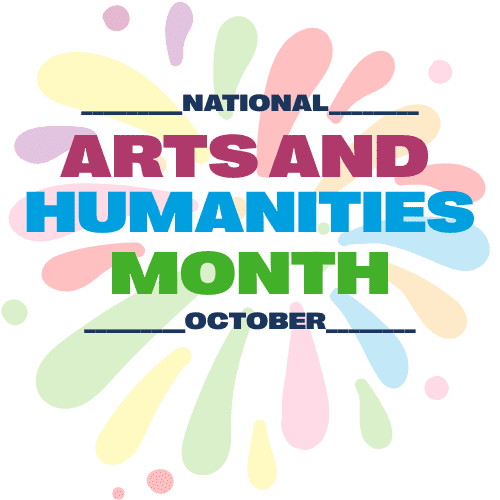National Arts and Humanities Month is observed annually in October, acknowledging the impact and importance of the Humanities subjects. It isn’t talked about or appreciated nearly enough as it should be. Today, there are many college students who pursue degrees in Humanities subjects, which are comprised of Literature, Classics, English, Philosophy, Anthropology, History, Linguistics, Religion, Cultural Studies, Geography, Film Studies, and many more. There’s been a long controversial discourse online about whether such degrees are worth pursuing due to demand in the job market in today’s world. There’s always been a demand for doctors, lawyers, engineers, scientists, mathematicians, architects, etc. What these careers all have in common is that they are all (except for lawyers), STEM based subjects.
STEM stands for Science, Technology, Engineering, and Math. Careers that fall under these subjects are usually looked up to and praised more than humanities subjects, with many people calling degrees in the Humanities, “Mickey Mouse Degrees,” inferring that they are easy. In fact, due to this mindset and the way the job market is taking its course, there is less enrollment in Humanities degrees, and it is decreasing. In 2012 the percentage dropped from 18.1% to 13.1% in 2022. Meanwhile, the percentage of STEM enrollment is much higher and steadily increasing. STEM fields have a larger share of bachelor’s degrees awarded, growing from 18% in 2015-16 to 21% in 2021-22. Specifically, this shift is attributed to factors like the perceived economic benefits, like being more financially stable pursuing a STEM degree.
Many underestimate the amount of work and effort it takes to be successful in the field. Objectively, some degrees are harder than others, which isn’t being denied. However, the point is that every subject has something that is difficult about it, which should be a given, and include Humanities. These subjects matter just as much as STEM degrees. While STEM gives the world reason, sense, logic, and answering our “why?” Humanities gives the world its soul, creativity, wonder, and keep us connected. A spoken word can cultivate community, or more specifically, a feeling of collective effervescence. Collective effervescence is a sociological concept describing a group’s shared experience of intense, unified emotion during collective rituals or events (concerts, sporting events, religious ceremonies). Coined by Émile Durkheim, it is a feeling of being “swept away” that can foster a sense of connection, awe, and shared purpose among people.
This word is all but a summary of what the study of humanities has done for human civilization—impacting the way we think about logic, abstract concepts, existential questions, literature, and human behavior.
There are many organizations that advocate and support the pursuance of humanities subjects in education, like The National Foundation on the Arts and Humanities (NFNAH). The organization that hosts National Arts and Humanities Month is Americans for the Arts, having the nation’s largest annual celebration of arts and culture. This year’s theme for the event is ‘Stories Unite Us.’ Americans for the Arts states that the theme, “reminds us that creativity defines who we are as a nation and who we aspire to be. Yet at a time when federal arts and humanities funding faces real threats, protecting the National Endowment for the Arts (NEA) and National Endowment for the Humanities (NEH) is more urgent than ever.” Additionally, Americans for the Arts launched a new initiative called ‘50 Stories, 50 States,’ which is a storytelling campaign that invites Americans everywhere to share how the Arts & Humanities have shaped their life, community, or identity. You can check out some of the pages on their site with these links:
- Share Your Story
- Download the Toolkit – ’50 Stories, 50 States’
- Research: Action-Oriented Research to Make a Case for the Arts
- Advocate: Stimulating Local, State, and Federal Advocacy for the Arts
- Connect: Building Stronger Communities Through the Arts One Person At A Time
- Lead: Forging Strategic Alliances That Propel the Arts Forward As A Solution
Sources:
- JCal News: The Decline of the Humanities Is Not Willful, It’s Just Ignorance
- Why Humanities Matter Just As Much As STEM
- STEM Fields Growing Among Four-Year College Degree Recipients
- Blog: Where Have All the STEM Grads Gone? | Just Equations
- Bachelor’s Degree In Humanities
- Emotional Processes, Collective Behavior, and Social Movements
- Tools for Human Flourishing: Collective Effervescence
- The Beauty of Collective Effervescence



